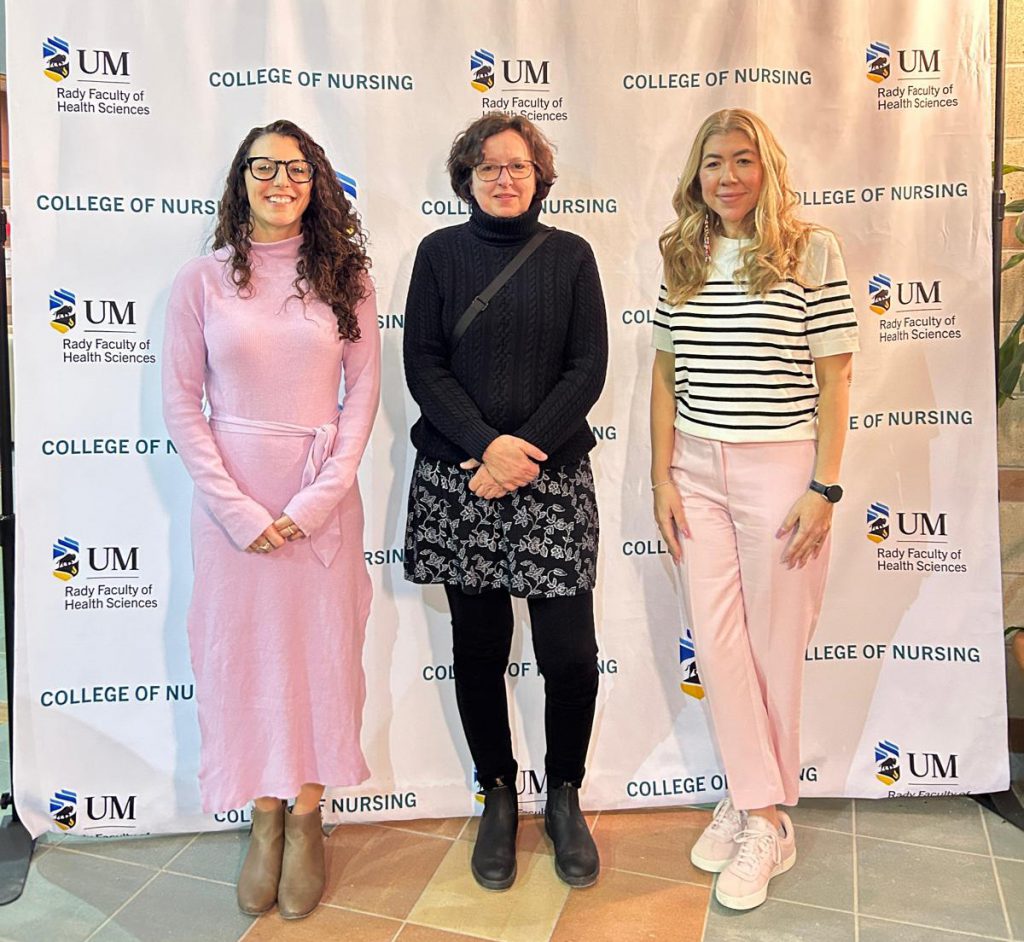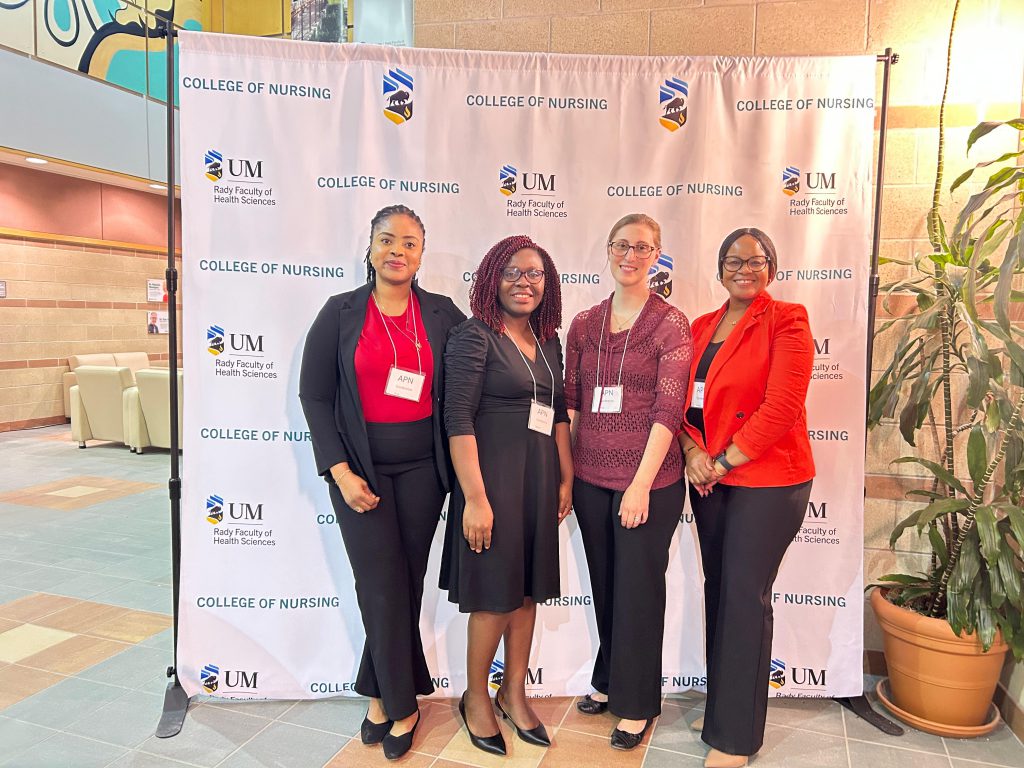
The Graduate Nursing Students’ Association at the University of Manitoba hosted its 15th Annual Advanced Practice Nursing (APN) Conference on March 19, 2025, at the Helen Glass Centre for Nursing.
The conference highlighted the work of four advanced practice nurses and their experiences with harm reduction.
Kirsty Muller is an Ojibwe registered nurse and nurse case manager of an opioid agonist therapy program through the Four Arrows Regional Health Authority. She is the first registered nurse to serve as Manitoba’s regional director for the Canadian Society of Addiction Medicine. She also holds board and consultant roles that enable her to advocate for people with addictions.
Muller spoke about several harm reduction projects she’s been involved in, including being part of a team that opened Canada’s first Indigenous-led Rapid Access to Addictions Medicine clinic in Winnipeg in 2023.
“I hold a lot of different roles, but most importantly, I do like to acknowledge that I am someone with lived experience as a daughter who lost my mom to a toxic drug poisoning in 2018, while she was living in Alberta. After that, I started my practice and focused more on addictions, and that became what I call my ‘heart medicine,’” she said.
Dr. Em Pijl is an assistant professor at the College of Nursing. She has published studies in journals such as Harm Reduction Journal and Canadian Journal of Public Health documenting the value of supervised consumption services. She spoke about harm reduction in the clinical context, including her research that aims to understand the views of those who are opposed to supervised consumption sites.
“The evidence for harm reduction is just unequivocal that it helps people and that it saves lives. For some people, it’s just not translating,” she said.

Emily Phillips is a master of nursing graduate from the College of Nursing. In 2023, she was awarded the prestigious Vanier Canada Graduate Scholarship and is a doctoral student in the applied health sciences program. She is also a clinical nurse specialist at St. Boniface Hospital, which is the first hospital in the province to have a harm reduction statement.
In September 2023, her paper on integrating harm reduction into acute care was published in JTCVS Open. She noted that the Health Sciences Centre used the paper to base its harm reduction program.
Jesse Lamoureux, a nurse practitioner with the Interlake-Easter Regional Health Authority, spoke virtually from his home in Pine Falls, where he runs a private practice. He has a master’s degree from the College of Nursing and discussed the nurse practitioner’s role in harm reduction.
“We’re all nurses, and humanism is a strong core in the philosophy of nursing. We need to respect autonomy, respect the individual, and view ourselves as health consultants for that individual and not a paternalistic way of saying ‘you do this,’” Lamoureux said.
The event was offered in-person and virtually, and over $220 was raised for the Manitoba Harm Reduction Network.
Naomi Armah, a PhD candidate in the College of Nursing and one of the co-chairs for the APN conference, said the conference provided insight into the roles of various advanced practice nurses in the field of harm reduction, harm reduction approaches and evidence-based research on the topic.
“Every individual deserves a chance to be supported in achieving holistic health. I believe the conference empowered nurses to understand the intersectional realities of harm reduction and employ a non-judgmental approach to help minimize the harm and promote quality of life,” Armah said.
